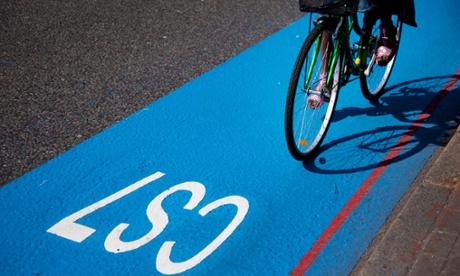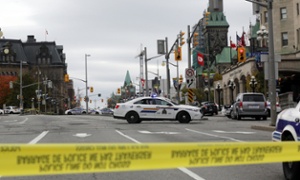
Cycling campaigners are raging that Boris Johnson’s most ambitious cycle superhighway project is threatened by a subversive combination of Square Mile planning officers and chauffeur-driven suits. As the consultation on the east-west “Crossrail for bikes” and its shorter north-south counterpart proceeds, this view has become loudly commonplace. Is it justified?
Its most strident expression so far appeared in the Guardian last week, when former Olympic cycling champion Chris Boardman, now a policy adviser for British Cycling, alleged that “behind the scenes there is an intense lobbying operation to destroy the plans” and that this is “led by just one company, the Canary Wharf Group, and by the City of London Corporation”. These Dark Lords of Mammon will not, Boardman wrote, “speak against the scheme in public” for fear of losing the debate so, instead, “they are trying to poison the project in secret without leaving any fingerprints”.
Big claims. The accused plead not guilty. The City of London Corporation, which is the local authority for the Square Mile, has declared support “in principle” for the two superhighways but raised concerns about its possible impacts on pedestrians, other road users and congestion in surrounding, often narrow, streets. The Canary Wharfers say much the same: that they’re in favour but have worries about aspects of the routes’ design. Suggestions that behind veils of qualified welcome lurks a secret mission to destroy draw gobsmacked denials.
Let’s go back a square or two. The board of Transport for London (TfL) includes Peter Anderson, who is also a Canary Wharf Group big cheese - its managing director of finance, no less. Anderson also chairs TfL’s finance and policy committee, which considers big projects that require big money before proposals go before the board. The committee will meet on 25 November when it is possible that funding for the east-west and north-south superhighways will be discussed. That isn’t yet confirmed, but the matter will come before the committee eventually.
The London Cycling Campaign (LCC) is demanding that Anderson takes no further part in discussing the superhighways. They say his Canary Wharf Group job creates “a clear conflict of interest”. TfL’s legal eagles are chewing this over. Meanwhile, the LCC points to a briefing paper issued on behalf of the Canary Wharf Group warning of dangers to London’s economy posed by the superhighways - proof, the campaign argues, of hostile intent.
That briefing paper lays its case on a pretty thick. Yet the attacks on Anderson are a bit broad brush. He’s hardly hidden his anxieties, voicing them at a board meeting way back in February. The conflict of interest issue was mentioned at the London Assembly’s transport committee on Tuesday morning. Labour vice chair Val Shawcross stressed to seemingly general assent that Anderson has conducted himself impeccably over the superhighways, which enjoy full cross-party support.
Even if Anderson does not “step aside” as the LCC wants and even should he resist funding the schemes, it’s very hard to see them being blocked. All nine committee members are on TfL’s board thanks to the mayor. They include his transport deputy Isabel Dedring, his trusted lieutenant Daniel Moylan, who is the committee’s vice chair, and Michael Liebreich, a sustainable energy expert who recently wrote an article about the superhighways for the Evening Standard which made disapproving reference to “a senior businessman” spreading concern. The board itself is just as unlikely to rebel.
More significant than the LCC’s case against Anderson is the case Anderson made at that TfL board meeting six months ago. He described his committee as eagerly supporting funding for the scheme’s design and engineering work, though on the assumption that the results of impact modelling would come through in good time. This, he said, would make it possible to judge if those impacts outweighed the benefits, especially with regard to segregation, and that if they did whether a re-design might be required.
In the event, the data weren’t released until three weeks ago, despite apparently having been compiled much earlier. The delay, blamed on control freakery at City Hall, prompted the City to complain and would hardly have deterred others from applying background pressure. The figures estimate that the effects on other road traffic would be mostly minimal, though there would be significantly longer queuing times on roads approaching central London to the east of Tower Hill, not unadjacent to Canary Wharf. The mayor expressed concern about these and pledged to lessen them by working “with all parties to improve the design”.
That work has now begun in partnership with TfL. Such engagement does not support theories about dissembling limo-lovers seeking to destroy the scheme completely. Even so, those who’ve asked for more time and information in order to make a full assessment have been on the wrong end of a line of criticism.
The first example was an Evening Standard article by the mayor’s own cycling adviser and fellow Telegraph writer Andrew Gilligan. Citing support for the scheme from individual businesses, Gilligan suggested that the City might be “out of step with those it speaks for”. This intervention was thought unhelpful (as they say) within the City and City Hall. Then came Liebreich’s piece, which reprised much of Gilligan’s argument, followed by Boardman’s tirade and a finely detailed challenge to Anderson’s position from the influential Cyclists In The City. Borrowing a phrase once deployed by Gilligan’s kindred spirit Lynton Crosby some ask rhetorically: “Are you thinking what we’re thinking”?
Up to a point, maybe. Boardman has been behind Johnson’s cycling vision from the off. He and Gilligan shared a “business dinner” in February 2013 (cost: £155) to discuss its launch. The cycling commissioner’s list of expenses also includes dining Cyclists In The City folk to “discuss cycle usage”. There’s nothing wrong with allying with such expertise. Indeed, it is commendable. But Gilligan’s way of doing things has not endeared him to some interested parties vital to the superhighways’ future. If the mayor wants progress to be smoother from now on, he should ensure that they are all kept onside.
Cycling activists, meanwhile, might be wise to lower their saddles a notch. Imaginative and impassioned, they’ve carried the flame for two-wheel freedom vividly. But the point may have been reached where aggression doesn’t help. They’ve taken up the “out of step” case Gilligan floated in his Standard piece, but it doesn’t stack up. The City knows full well that much of business backs bikes, but its planners are bound to want to ensure that major infrastructure change is made to best effect for the Square Mile as a whole. Business group London First, also under fire for not cheering loudly enough, is obliged to reflect different shades of opinion among its members. Canary Wharf doesn’t wish to be railroaded, which appears to explain why the consultation period has lengthened by nearly a month.
Like it or not, these people are just doing their jobs. Cycling campaigners might now get more joy doing theirs if they lobby more constructively. This PR war has a phoney quality, because Johnson’s cycling flagship looks nailed on. Political support for it is harmonious, backing for it is broad. It might yet be altered, it might be delivered late, but already it is hard to imagine a future London without it.











